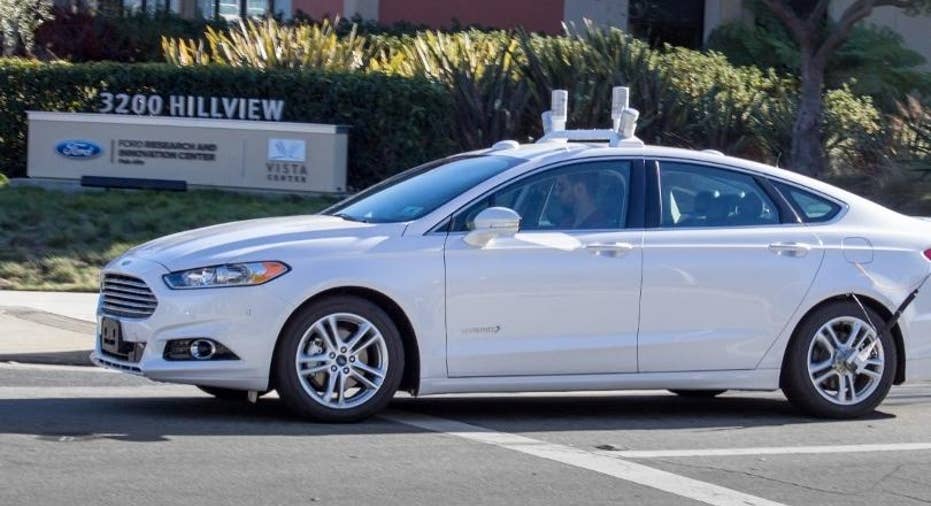Ford Self-Driving Cars to Ditch Pedals, Steering Wheel by 2021

Ford is getting super serious about self-driving taxis.
The auto maker on Monday said it intends to begin mass producing self-driving vehicles in 2021 for a ride-hailing service. To achieve that goal, the company is investing in or collaborating with four start-ups to bolster its autonomous vehicle development, doubling its Silicon Valley Team and more than doubling its Palo Alto campus.
Ford is going all-in with this plan — the company's first fully autonomous vehicle will lack several key parts of cars today: a steering wheel and gas and brake pedals. Because the car will be able to drive itself, it won't need them. The vehicle is being "specifically designed for commercial mobility services … and will be available in high volumes," Ford said in its announcement.
In 2014, Google also ditched the steering wheel in its self-driving prototype vehicle, but was required by California to add it back when testing on public roads, so a human driver could intervene in an emergency.
Ford is already testing autonomous vehicles in California, and plans to ramp up these efforts in a big way this year, tripling its fleet to be "the largest test fleet of any automaker." By the end of the year, the company plans to have about 30 self-driving Fusion Hybrid sedans on the roads in California, Arizona, and Michigan, and it plans to triple that number again next year.
"The next decade will be defined by automation of the automobile, and we see autonomous vehicles as having as significant an impact on society as Ford's moving assembly line did 100 years ago," Ford president and CEO Mark Fields said in a statement. "We're dedicated to putting on the road an autonomous vehicle that can improve safety and solve social and environmental challenges for millions of people — not just those who can afford luxury vehicles."
To deliver on its plan, Ford has announced new investments in and collaborations with four companies: Silicon Valley LiDAR sensor company Velodyne, Israel-based computer vision and machine learning firm SAIPS, machine vision company Nirenberg Neuroscience, and Berkeley, Calif.-based 3D mapping company Civil Map.
This article originally appeared on PCMag.com.



















